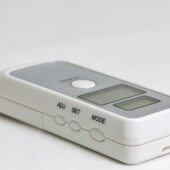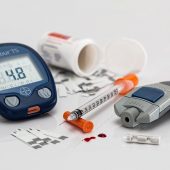A common reason people want to cheat on a cholesterol test is to prevent their health or life insurance premiums from going too high. You may have your reasons. But how to cheat a cholesterol test?
Whether you can actually cheat on a cholesterol test is debatable.
The problem is that it takes time to lower cholesterol levels in your body. You cannot just wake up and jog your way to lower LDL (bad cholesterol) and triglycerides numbers.
With a good lifestyle it takes at least 3-4 weeks for most people to significantly lower their cholesterol levels. If you are not very strict with your diet and workouts, it could take month. This is not good news if you have a few days to pass the test.
That’s not to say that people haven’t tried to cheat on their cholesterol test. We dug into forums and blogs online to find techniques that people have tried, and then checked with experts and medical literature where there is truth to any of them.
Note: We use the word ‘cheat’ loosely here to mean rapidly bringing down your LDL and triglycerides so that you can pass a cholesterol test (get a cholesterol measurement of 200 mg/dL or less). Actually cheating on the test by providing fake blood or manipulating the test results is impossible or very difficult, and may put you in legal trouble.
How to Cheat a Cholesterol Test: Popular Claims
1. Fasting
One of the most common advice we came across on forums is fasting prior to the test. Some people claim that fasting for 24 hours or so can reduce cholesterol levels in the blood.
This claim arises from the past medical advice that recommended fasting before a cholesterol test to ensure accurate testing of LDL and triglycerides.
Doctors believed that eating prior to the test could quickly raise the amount of these two types of fat in your blood.
New research suggests that’s not the case. Eating normally prior to the test doesn’t significantly affect how your test turns out. This has led to new recommendations stating that no fasting is necessary before a cholesterol test.
The same way that eating normally doesn’t have a significant effect on your cholesterol levels, fasting also has little to no effect.
Fasting for hours before the test is unlikely to bring down your cholesterol numbers enough to make a difference in the test results.
One thing that can help is avoiding foods high in saturated fat prior to the test such as dairy, a burger, and meat. These can quickly elevate your triglyceride levels, resulting in higher overall cholesterol numbers.
2. Eating Oats
Oats are highly effective at reducing bad cholesterol in your body.
They contain an important soluble fibre – beta-glucan – that reduces the absorption of cholesterol into the blood stream from the intestines.
While eating oats will definitely result in better cholesterol numbers, it takes time like any other dietary intervention for cholesterol. In many studies, participants ate oats daily for at least 3-4 weeks to get a big drop in LDL and triglycerides.
So if you are hoping for a quick-working miracle, oats are not it.
Similarly, other foods high in soluble fibre such as barley, beans and apples will not produce the quick effect you are hoping for.
3. Exercise
The standard recommendation for people with high levels of cholesterol is regular exercise, in addition to a healthy diet. Exercise is effective at reducing bad cholesterol (LDL and triglycerides) and elevating good cholesterol (HDL).
So you may think that high intensity exercise – like running or cycling – hours before the test will help you pass.
The truth is, exercising just before a cholesterol test is more likely to make your numbers go up, not down.
Intensive exercise releases fat into your blood stream to provide your body with energy. This elevates your LDL levels (HDL levels may also go up).
If you have a few weeks to the test, exercise and a good diet are excellent ways to bring your cholesterol down. But if you have a couple days or a few hours, it’s too late for exercise to help you with the test.
Proven Ways to Reduce Cholesterol
As we have seen, unless you can somehow give fake blood to the doctor or lab (which is near impossible since blood is drawn on the spot), there’s really no effective way to cheat a cholesterol test.
However, if you have plenty of time – weeks or months – before the test, it’s easy to improve your cholesterol numbers.
Focus on two things: diet and exercise.
- On diet, reduce your intake of saturated fats and trans-fats, eat foods rich in heathy fats like fish and avocados, eat high-fibre foods (especially soluble fibre) and drink less alcohol.
- On exercise, get into a regular workout routine involving both cardio and resistance training. Work out for at least 150 minutes a week to lower LDL and triglycerides and increase HDL.
Tip: For people on a ketogenic diet, try not to lean too heavily on saturated fat (especially meats and dairy) to meet your daily fat intake. Despite losing weight and feeling healthy, some people on keto see a drastic increase in bad cholesterol after a few weeks or months on the diet. Focus more on plant-based fat.
It’s important to monitor your cholesterol so that you know what you are doing is working. Go for regular tests at a lab or hospital.
In between those tests, you can use a home cholesterol test kit to check your progress. Most of these kits only test total cholesterol, but they’ll still give you an idea of how well your diet and exercise efforts are working.


